Civilizations in Mesopotamia
History
Akkad
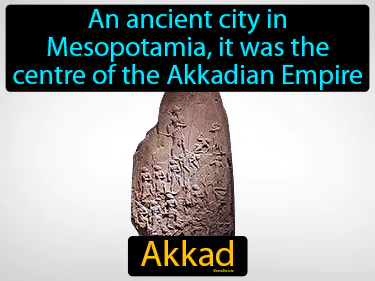
An ancient city in Mesopotamia, it was the centre of the Akkadian Empire. Akkad. It was the first empire in history, uniting many Mesopotamian city-states under one ruler.
alluvial plain
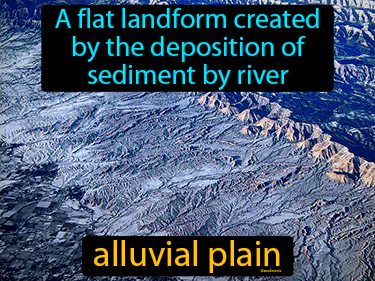
A flat landform created by the deposition of sediment by a river. Alluvial plain. In history, alluvial plains were often the sites of ancient civilizations due to their fertile soil and access to water.
almanac
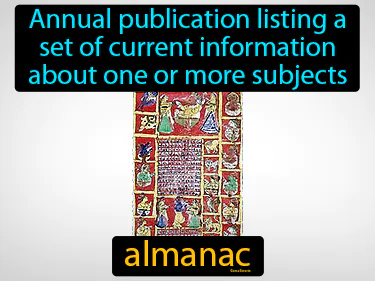
Annual publication listing a set of current information about one or more subjects. Almanac. In history, an almanac is a book that provides data and facts about historical events and various subjects for a specific year.
Babylon
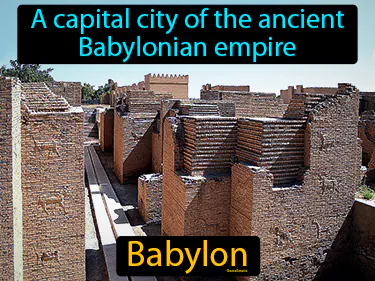
a capital city of the ancient Babylonian empire. Babylon. Babylon was a major city in ancient Mesopotamia known for its impressive architecture and cultural advancements.
caravan

A group of people traveling together, often on a trade expedition. Caravan. In history, a caravan is a convoy of traders or pilgrims traveling together across long distances for safety and commerce.
city-state

A sovereign microstate that usually consists of a single city and its dependent territories. City-state. In history, a city-state is an independent political entity that revolves around a central city and its surrounding areas, like ancient Athens.
Code of Hammurabi
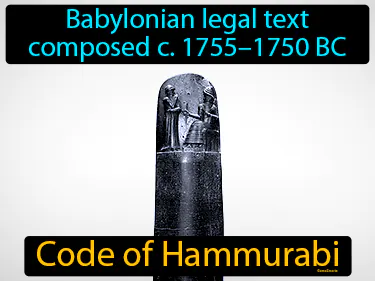
Babylonian legal text composed c. 17551750 BC. Code of Hammurabi. It is one of the earliest and most complete written legal codes in history, created by the Babylonian king Hammurabi.
conquer
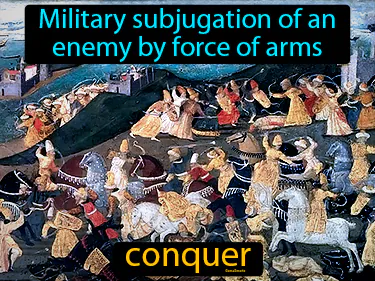
Military subjugation of an enemy by force of arms. Conquer. Conquering is when one group defeats and takes control over another group or land through military power.
cuneiform
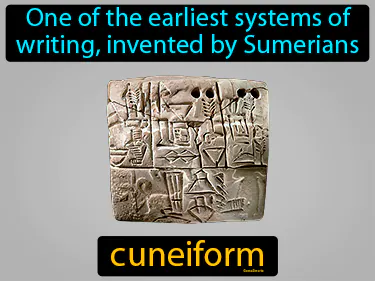
One of the earliest systems of writing, invented by Sumerians. Cuneiform is a system of writing using wedge-shaped marks on clay tablets.
emperor
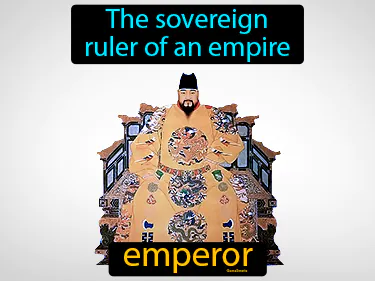
The sovereign ruler of an empire. Emperor. An emperor is a powerful leader who controls a vast territory of many lands and people.
empire
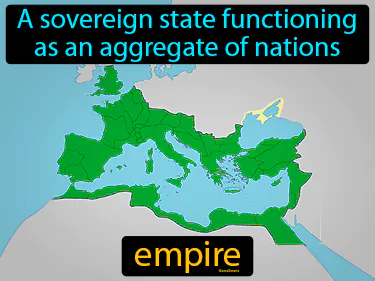
A sovereign state functioning as an aggregate of nations. Empire. An empire is a large political unit where a single authority controls multiple territories or peoples.
Eridu
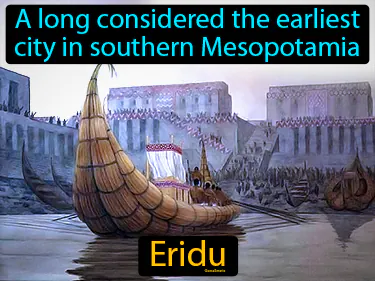
A long considered the earliest city in southern Mesopotamia Eridu. Eridu is one of the oldest known cities in history, believed to have played a significant role in the development of Sumerian civilization.
Hammurabi
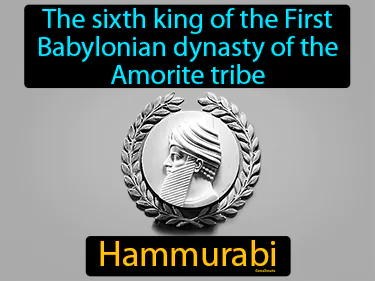
The sixth king of the First Babylonian dynasty of the Amorite tribe. Hammurabi. Hammurabi is known for creating one of the earliest and most complete written legal codes.
innovation

Practical application of ideas that result in the introduction of new goods or services. Innovation. Throughout history, innovation has been the driving force behind major advancements like the wheel, electricity, and the internet, transforming societies and industries.
Kish
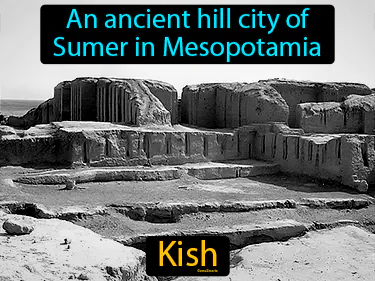
An ancient hill city of Sumer in Mesopotamia. Kish. Kish was a prominent city-state in ancient Mesopotamia, often considered one of the earliest examples of urban civilization in history.
Lagash
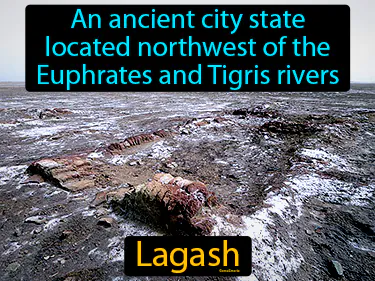
An ancient city state located northwest of the Euphrates and Tigris rivers. Lagash. Lagash was one of the early city-states in Mesopotamia known for its rich cultural and architectural achievements.
Leonard Woolley

A British archaeologist best known for his excavations at Ur in Mesopotamia, Leonard Woolley. He was a pioneering figure in the field of archaeology who uncovered ancient Sumerian artifacts and structures.
Mesopotamia
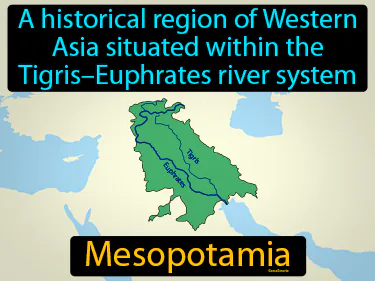
A historical region of Western Asia situated within the TigrisEuphrates river system. Mesopotamia. It is often called the cradle of civilization because it was where some of the first human cities and empires emerged.
monarchy

A form of government in which the monarch is head of state. Monarchy is a historical system where a king or queen rules a country.
Nebuchadnezzar
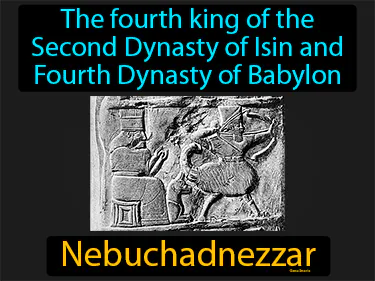
The fourth king of the Second Dynasty of Isin and Fourth Dynasty of Babylon. Nebuchadnezzar. Nebuchadnezzar was an ancient Babylonian king known for his extensive building projects and the Hanging Gardens of Babylon.
polytheism
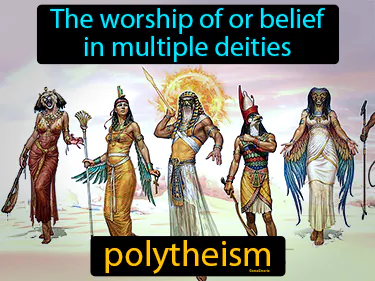
The worship of or belief in multiple deities. Polytheism is the belief in and reverence for multiple gods or goddesses, common in ancient cultures such as Greece and Egypt.
Sargon
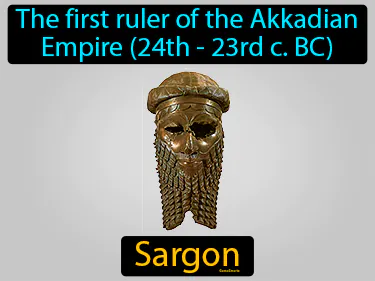
The first ruler of the Akkadian Empire 24th - 23rd c. BC. Sargon. Sargon was a significant historical figure known for creating one of the world's first empires in Mesopotamia.
scribe

A person who copied documents writing by hand. Scribe. In history, a scribe was someone whose job was to manually write and record information before the invention of the printing press.
silt

A granular material whose mineral origin is quartz and feldspar. Silt. Silt is fine sediment deposited by water, and it helped create fertile soils in ancient river civilizations like Egypt.
standing army
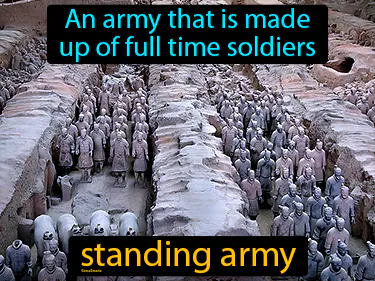
An army that is made up of full-time soldiers. Standing army. A standing army is a permanent, professional military force that is maintained even during peacetime.
Sumer
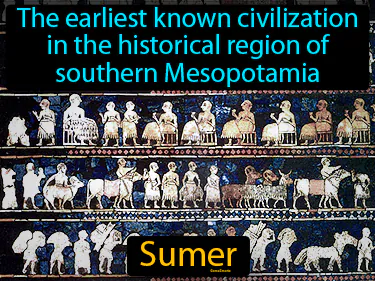
The earliest known civilization in the historical region of southern Mesopotamia. Sumer. Sumer was an ancient civilization known for creating the first form of writing and early cities.
tribute

A wealth that one party gives to another as a sign of respect, submission, or allegiance. Tribute. In history, tribute was often a payment made by one nation or ruler to another, signifying submission or seeking protection.
Ur
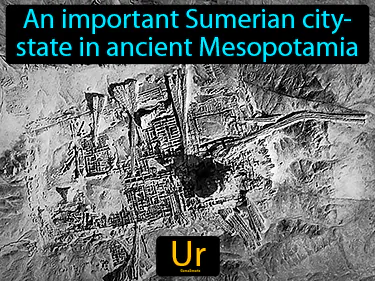
An important Sumerian city-state in ancient Mesopotamia. Ur was one of the earliest urban centers and a significant cultural and commercial hub in ancient Mesopotamia.
Ur-Nammu
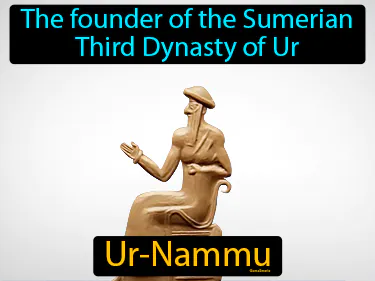
The founder of the Sumerian Third Dynasty of Ur Ur-Nammu. Ur-Nammu was an ancient king who established a powerful dynasty in Sumer around 2100 BCE.
Uruk
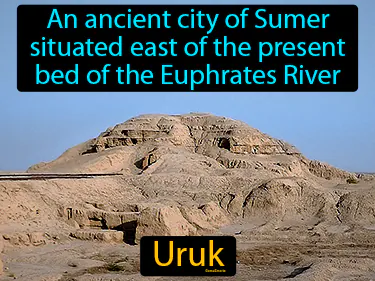
An ancient city of Sumer situated east of the present bed of the Euphrates River. Uruk. Uruk was one of the world's first major cities and a central hub of early human civilization.
Urukagina
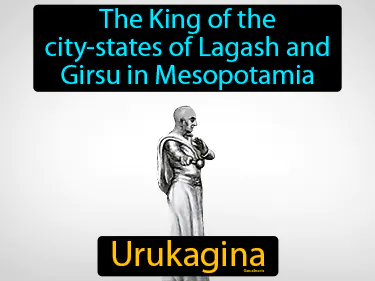
The King of the city-states of Lagash and Girsu in Mesopotamia. Urukagina. Urukagina is known for implementing early legal reforms and attempting to combat corruption in ancient Mesopotamia.
ziggurat
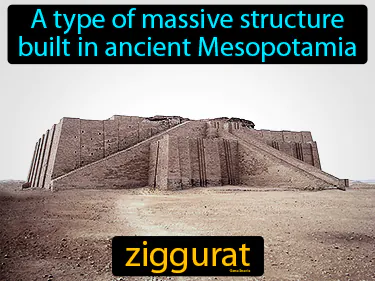
A type of massive structure built in ancient Mesopotamia ziggurat. A ziggurat is a terraced, pyramid-like building used for religious purposes.